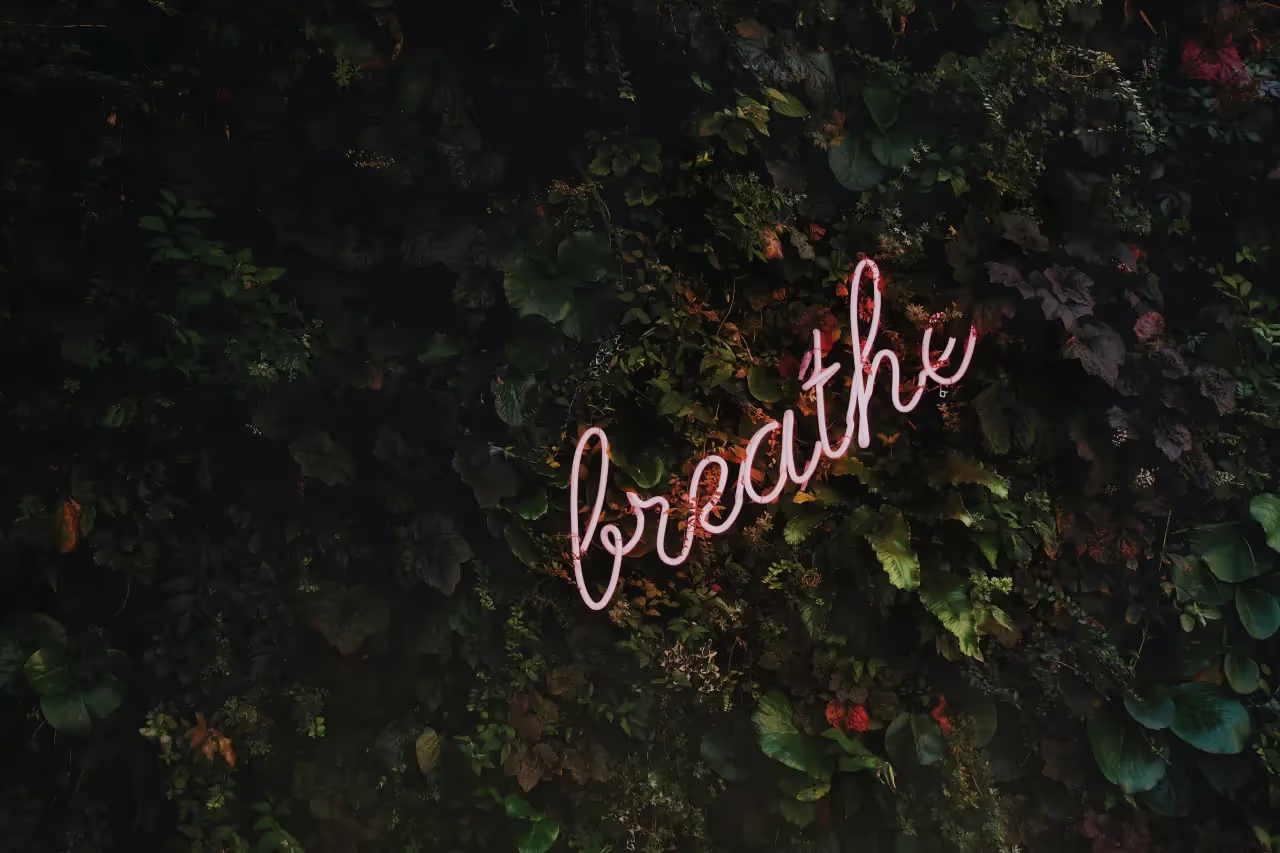The importance of healthy coping techniques cannot be overstated. When faced with stress, our mind and body need effective ways to process emotions and...

When faced with stress, our mind and body need effective ways to process emotions and maintain equilibrium. In the absence of such techniques, we may resort to unhealthy habits like smoking, overeating, or substance abuse, which can have detrimental effects on our health. Helthy coping techniques enable us to handle stress more efficiently and foster resilience, ultimately contributing to a happier and healthier life. Explore a few of the beneficial coping strategies below that you can attempt today.
Deep breathing exercises are an effective way to reduce stress, and improve mental clarity. By practicing deep breathing regularly, you can tap into your body's natural relaxation response, which helps counteract the negative effects of stress.
4-7-8 Technique
The 4-7-8 technique is a simple yet powerful exercise that can help you relax and reduce stress quickly. Here's how to do it: Settle into a cozy position, whether it's seated or lying down. Gently close your eyes and draw in a deep breath through your nostrils, counting up to 4 seconds during the process. Hold your breath for a count of 7 seconds. Exhale slowly through your mouth for a count of 8 seconds. Repeat this cycle 4 times. As you become more comfortable with this technique, you can increase the number of cycles to further deepen relaxation.
Diaphragmatic Breathing
Diaphragmatic breathing, also known as belly breathing, is an effective way to engage the diaphragm and promote deeper, more relaxed breathing. Here's how to practice diaphragmatic breathing:
Discover a cozy posture, whether seated or reclined. Position one hand over your chest and the other on your belly. Inhale slowly and deeply through your nostrils, concentrating on expending your abdomen rather than your chest. The hand resting on your belly should elevate, while the one on your chest stays still. Exhale slowly through your mouth, allowing your abdomen to contract. Continue this pattern for several minutes, focusing on the movement of your breath and the rise and fall of your abdomen.

By training your mind to focus on the present moment, you can reduce stress, improve mental clarity, and foster emotional well-being. For beginners, there are several accessible meditation practices to try:
Guided Meditation: This involves listening to an audio recording or following along with an instructor who guides you through a specific meditation technique. Guided meditations can help you learn proper breathing, visualization, or body awareness techniques without feeling overwhelmed.
Body Scan: This meditation practice involves focusing on different parts of your body and observing any sensations or tension that you may feel. Starting from your toes and moving up to your head, you'll gradually bring awareness to each body part, helping you develop mindfulness and relaxation. Remember, consistency is key when it comes to meditation. Start with short sessions of 5-10 minutes daily and gradually increase the duration as you become more comfortable with the practice.
Exercise and mental health are closely connected, as engaging in regular physical activity can significantly improve your mood and reduce stress. By releasing endorphins, exercise helps to create a positive state of mind and enhance self-esteem. There are various forms of physical activity to suit different preferences, so you're sure to find something you enjoy:
Yoga: This ancient practice combines physical postures, breathing techniques, and meditation to promote both mental and physical balance. It's a great option for those seeking a more mindful workout experience.
Jogging: If you love the outdoors, jogging is a fantastic way to connect with nature while improving your cardiovascular health. Plus, it's an excellent way to clear your mind and build mental resilience.
Dancing: For a fun and energetic workout, dancing is the way to go! Whether it's joining a Zumba class or simply dancing around your living room, this enjoyable form of exercise can lift your spirits and help relieve stress. The key is to find a physical activity you genuinely enjoy so that you're more likely to stick with it.
Journaling is a fantastic therapeutic tool that can help you better understand your emotions, thoughts, and experiences. It provides a safe space to express yourself, reflect on your day, and gain valuable insights into your mental well-being. Some of the therapeutic benefits of journaling include stress reduction, increased self-awareness, and improved problem-solving skills. Here are a few journaling methods to try:
Gratitude Journal: Each day, write down a few things you're grateful for. This practice helps shift your focus to the positive aspects of life, fostering a greater sense of happiness and contentment.
Stream-of-Consciousness Writing: Let your thoughts flow freely onto the page without worrying about grammar or structure. This method allows you to explore your inner world and uncover hidden emotions or patterns of thinking. Remember, there's no right or wrong way to journal. The key is to find a method that resonates with you.
It is crucial to identify when you require professional support for your mental health. Indications that assistance may be necessary consist of constant negative thinking, challenges in managing everyday life, alterations in sleep or eating habits, and being inundated by emotions. To find the right professional, ask for recommendations from friends, consult online directories, or reach out to local mental health clinics. Schedule an initial consultation to ensure they align with your needs and goals. Remember, a strong therapeutic relationship is crucial for successful therapy. Don't hesitate to seek help when needed and be patient with yourself throughout the process.
In conclusion, healthy coping techniques play a vital role in effectively managing stress and emotions. Incorporating practices such as deep breathing exercises, mindfulness and meditation, physical activity, and journaling can significantly improve one's mental and emotional well-being. Moreover, seeking professional help when necessary is a valuable step toward maintaining a balanced and healthy life. By integrating these strategies into our daily routine, we empower ourselves to navigate through life's challenges with resilience, self-awareness, and a greater sense of inner peace.
The techniques activate the parasympathetic nervous system, which increases tolerance to distress, decreases physical discomfort, slows impulsive behaviors, and helps redirect a person's focus to bring it back to the present.
No prior experience is required in order to take part in a life coaching course offered by Overcome With Us. All courses are designed for beginners or those looking for refresher courses that focus on different aspects of personal growth and development.
If you don't have a close friend or family member to confide in, consider joining a support group, seeking professional help from a therapist or counselor, or utilizing online resources such as forums or chat rooms for emotional support.
Accepting the things you cannot change is crucial, so you shouldn't try to control the uncontrollable; instead, look for the upside. Share your feelings with a therapist, friend, or family member, and learn to forgive if relevant.
If your emotions are interfering with your ability to perform at work, consider discussing your situation with your supervisor or human resources department. They may be able to provide accommodations or resources to support your well-being.
Yes, some effective relaxation techniques include deep breathing exercises, progressive muscle relaxation, visualization, and mindfulness meditation. Experiment with different methods to find the one that works best for you.